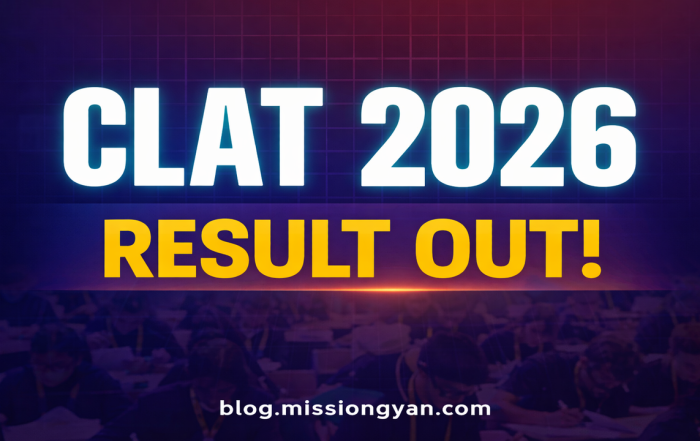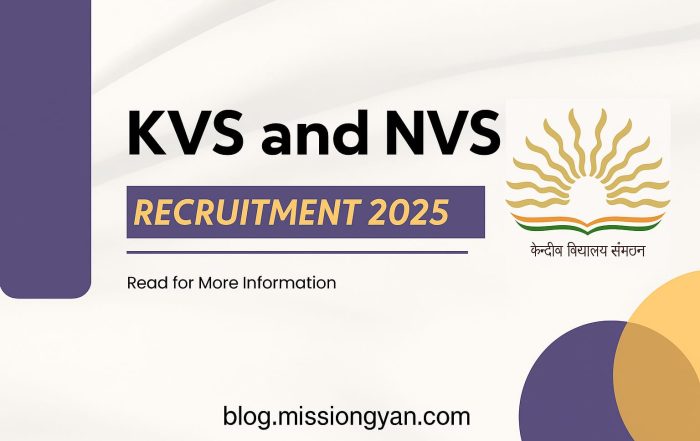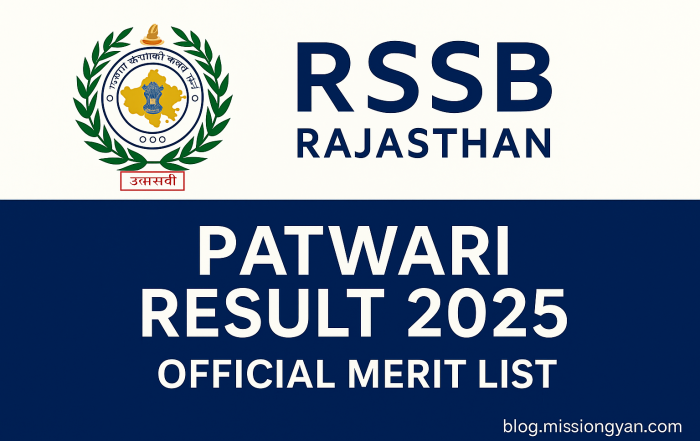India, the largest democracy in the world, relies on the strength of its electoral institutions. At the Centre of this structure stands the Chief Election Commissioner (CEC)—a figure entrusted with ensuring free, fair, and transparent elections. This article dives deep into the role, powers, and evolving challenges of the CEC, blending static General Knowledge with the most recent developments.
What Is the Chief Election Commissioner’s Role?
The Chief Election Commissioner is the head of the Election Commission of India (ECI)—a constitutional body responsible for conducting elections to the Parliament, state legislatures, and key constitutional offices like the President and Vice President.
The CEC ensures that elections are conducted without bias, interference, or malpractice. The role includes overseeing electoral rolls, monitoring political campaigns, enforcing the Model Code of Conduct, and certifying election results.
Appointment, Tenure & Powers
The CEC is appointed by the President of India, generally on the recommendation of a high-level committee comprising the Prime Minister, a Cabinet Minister, and the Leader of the Opposition in the Lok Sabha.
- Tenure: The term is either six years or until the age of 65, whichever comes earlier.
- Authority: The CEC’s powers are equivalent to that of a Supreme Court judge when it comes to service protections.
- Independence: The CEC cannot be removed from office except through a process of impeachment by Parliament, ensuring autonomy.
Evolution of the Election Commission
Initially a single-member body, the Election Commission was expanded in 1989 to include two Election Commissioners along with the CEC. The three now function as a collegium, but the CEC continues to be the primus inter pares—first among equals.
Some key reforms and milestones include:
- Introduction of Electronic Voting Machines (EVMs).
- Voter awareness programs like SVEEP (Systematic Voters’ Education and Electoral Participation).
- VVPAT (Voter Verified Paper Audit Trail) for enhanced transparency.
- Online systems for voter registration and complaints.
Historical Impact: From Reformers to Technocrats
Over the decades, several CECs have left a lasting mark on India’s electoral system. One of the most impactful was T. N. Seshan, who redefined the role in the 1990s by cracking down on electoral corruption, enforcing discipline among political parties, and re-establishing the Commission’s authority.
In recent years, the focus has shifted toward using technology, ensuring inclusivity, and strengthening institutional credibility amid growing political polarization.
📋 Chronological Table of Chief Election Commissioners
| S.No. | Name | From | To | Duration |
|---|
| 1 | Sukumar Sen | 21 Mar 1950 | 19 Dec 1958 | 8 years, 9 months |
| 2 | K. V. K. Sundaram | 20 Dec 1958 | 30 Sep 1967 | 8 years, 9 months |
| 3 | S. P. Sen Verma | 1 Oct 1967 | 30 Sep 1972 | 5 years |
| 4 | Dr. Nagendra Singh | 1 Oct 1972 | 6 Feb 1973 | 4 months, 6 days |
| 5 | T. Swaminathan | 7 Feb 1973 | 17 Jun 1977 | 4 years, 4 months |
| 6 | S. L. Shakdhar | 18 Jun 1977 | 17 Jun 1982 | 5 years |
| 7 | R. K. Trivedi | 18 Jun 1982 | 31 Dec 1985 | 3 years, 6 months |
| 8 | R. V. S. Peri Sastri | 1 Jan 1986 | 25 Nov 1990 | 4 years, 11 months |
| 9 | V. S. Ramadevi | 26 Nov 1990 | 11 Dec 1990 | 15 days |
| 10 | T. N. Seshan | 12 Dec 1990 | 11 Dec 1996 | 6 years |
| 11 | M. S. Gill | 12 Dec 1996 | 13 Jun 2001 | 4 years, 6 months |
| 12 | J. M. Lyngdoh | 14 Jun 2001 | 7 Feb 2004 | 2 years, 8 months |
| 13 | T. S. Krishnamurthy | 8 Feb 2004 | 15 May 2005 | 1 year, 3 months |
| 14 | B. B. Tandon | 16 May 2005 | 29 Jun 2006 | 1 year, 1 month |
| 15 | N. Gopalaswami | 30 Jun 2006 | 20 Apr 2009 | 2 years, 10 months |
| 16 | Navin Chawla | 21 Apr 2009 | 29 Jul 2010 | 1 year, 3 months |
| 17 | S. Y. Quraishi | 30 Jul 2010 | 10 Jun 2012 | 1 year, 10 months |
| 18 | V. S. Sampath | 11 Jun 2012 | 15 Jan 2015 | 2 years, 7 months |
| 19 | H. S. Brahma | 16 Jan 2015 | 18 Apr 2015 | 3 months |
| 20 | Dr. Nasim Zaidi | 19 Apr 2015 | 5 Jul 2017 | 2 years, 3 months |
| 21 | Achal Kumar Jyoti | 6 Jul 2017 | 22 Jan 2018 | 6 months |
| 22 | Om Prakash Rawat | 23 Jan 2018 | 1 Dec 2018 | 10 months |
| 23 | Sunil Arora | 2 Dec 2018 | 12 Apr 2021 | 2 years, 4 months |
| 24 | Sushil Chandra | 13 Apr 2021 | 14 May 2022 | 1 year, 1 month |
| 25 | Rajiv Kumar | 15 May 2022 | 18 Feb 2025 | 2 years, 9 months |
| 26 | Gyanesh Kumar | 19 Feb 2025 | 26 Jan 2029* | Ongoing |
Who Is the Current Chief Election Commissioner (2025)?
As of 2025, Gyanesh Kumar serves as the Chief Election Commissioner of India. He took office in February 2025. Becoming the first CEC appointed under the new 2023 Act that altered service terms and conditions for Election Commissioners.
Under his leadership, the Commission has implemented several large-scale initiatives. Such as digitization of records, enhanced voter verification systems, and strategic cleanup of electoral rolls.
Recent Controversy: The Bihar Voter Roll Overhaul (SIR)
One of the most talked-about issues during Gyanesh Kumar’s tenure is the Special Intensive Revision (SIR) of the voter list in Bihar.
The move aimed to clean up the electoral rolls by removing duplicate, deceased, and ineligible voters. As a result, approximately 65 lakh names were reviewed or deleted. The exercise received both praise and criticism:
- Supporters say it was a necessary step to ensure clean and accurate voter data.
- Critics argue that it may have disproportionately affected specific communities and raised concerns of disenfranchisement.
A minor error, where a 124-year-old was mistakenly registered due to a data entry issue, highlighted the scale and sensitivity of such operations.
Political Fallout and Public Reactions
The voter list revision triggered political uproar. Accusations of bias, misuse of power, and suppression of voters surfaced, with some opposition leaders calling for the impeachment of the CEC. Allegations like “vote theft” were made, demanding strong responses from the Commission.
In response, the CEC demanded evidence or retractions, emphasizing the Commission’s commitment to neutrality. Meanwhile, civil service bodies defended the institutional integrity of the office.
The controversy has put the spotlight back on the importance of electoral transparency, digital accuracy, and public trust in democratic institutions.
The Road Ahead: Challenges for the CEC
India’s electoral landscape is rapidly changing, and the CEC’s office must evolve accordingly. Some of the upcoming challenges include:
- Ensuring voter access amid increasing migration and urbanization.
- Combating misinformation and electoral fraud through tech-enabled systems.
- Addressing political polarization and maintaining neutrality.
- Increasing voter turnout, especially among youth and first-time voters.










